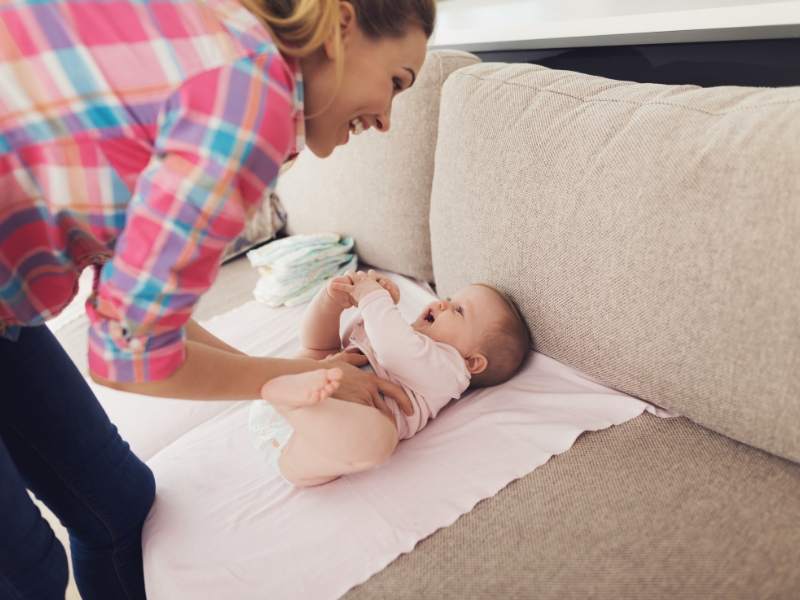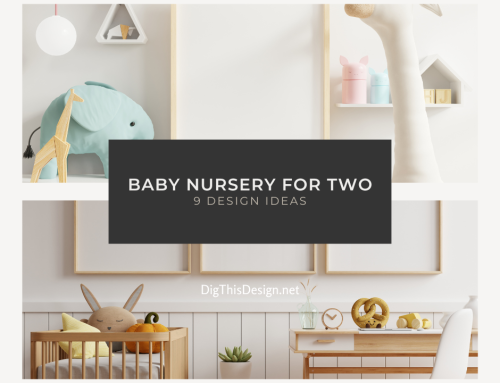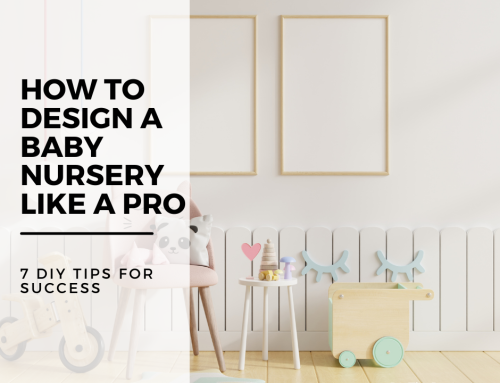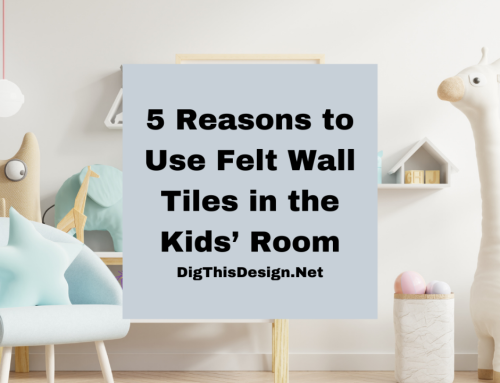Sharing a room with your baby is sometimes a personal preference and sometimes a necessity due to lack of additional bedrooms. Either way, there are designing ways to include your baby in your master bedroom if you don’t have a separate nursery
Sharing a room with your baby is a wonderful time in your life, but needs to be as functional as possible for a nice comfort level for both of you. Here are six tips on how sharing a room with your baby is both doable and enjoyable.
Sharing a Room with Your Baby • Tips and Tricks
The Furniture Essentials
Furniture such as a changing table is convenient, but the only furniture you truly need for your baby is a safe place for them to sleep. Perhaps you don’t have room for a full-size crib and aren’t comfortable with the idea of co-sleeping. A good solution is to invest in a cradle or a mini-crib. Moreover, a cradle might not be worth it because your baby will only be able to safely sleep there for the first few months.
On the other hand, mattresses on a mini-crib can be lowered, making them safe for older babies to sleep in. Please note that regular crib sheets won’t work in a mini-crib. You’ll need to get sheets and a mattress protector for your baby that specifically fits a smaller crib.
Create Individual Spaces
Just because your baby is sharing your room doesn’t mean the crib needs to be right next to your bed. Get creative with your space so that there is some individual space for the two of you. For instance, there might be a small nook in your room where the crib will fit nicely.
Another idea is to create some sort of physical divider using a shelf or a curtain. If you don’t have enough space for a physical divider, use a rug to distinguish what area belongs to the baby. By creating a separation, your baby will still have their own tiny nursery area that you can decorate.
Cancel Out Noises
One of the hardest parts of sharing a bedroom with a baby is that they need peace and quiet when they’re sleeping. A quick solution is to hang curtains around the crib to help reduce sounds.
Additionally, If you don’t have carpeting, then, invest in rugs so that you quietly enter and exit the room. Also, a white-noise machine is a good investment if your baby is particularly sensitive to sound. White-noise machines help create a peaceful atmosphere in which to sleep for your baby by eliminating other household noises.
Clear the Clutter

You may soon find that your once perfectly clean master bedroom is drowning in baby socks, bottles, pacifiers, and other necessary baby equipment. That’s when you need to reevaluate storage solutions in your bedroom. Use a closet organizer, cube storage unit, or wall shelves to create dedicated spaces that are just for baby.
If you use some sort of open storage unit to store baby items, such as a bookshelf, consider putting fabric up around the storage unit to hide the items. Creating dedicated spaces throughout the room allows baby to have their space and for you to have your space. That’s a win-win for you both!
Move Outside the Bedroom

If you’re dealing with a small bedroom, it might be hard to store all of baby’s essentials in the bedroom. Consider utilizing different areas throughout the house for different purposes. For example, maybe your baby only sleeps in the bedroom. When baby needs to be fed or changed, you can move to another room, such as the living room, and keep those essentials stored in that space.
Use storage bins to store the materials you need for changing baby, feeding baby, and playing with your baby. Those bins can then move throughout the house.
Keep it Simple
It is tempting to decorate baby’s space like a full-fledged nursery, however, you might find it more relaxing to keep the space simple. Keep decorative items at a minimum and use colors that compliment your existing decor. As long as your baby is comfortable and safe, they don’t care what their area looks like.

Final Thoughts
Remember, having a dedicated nursery is nice, but it isn’t a requirement. Sharing a room with your baby keeps them close and saves you money because you don’t have to furnish a nursery. Until the baby is ready to move in with a sibling or until you have a larger home, rest assured that your baby will thrive while sharing a room with you.
All Images Courtesy of Canva.
Other Posts You Might Enjoy:
Children and Bathroom Safety; 4 DIY Tips
6 Ways to Choose the Best Child-friendly Neighborhood





